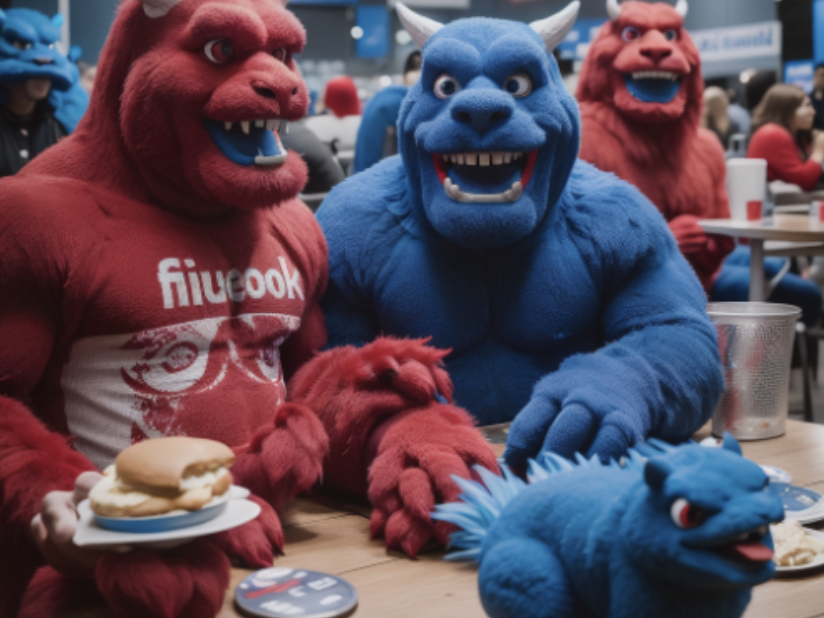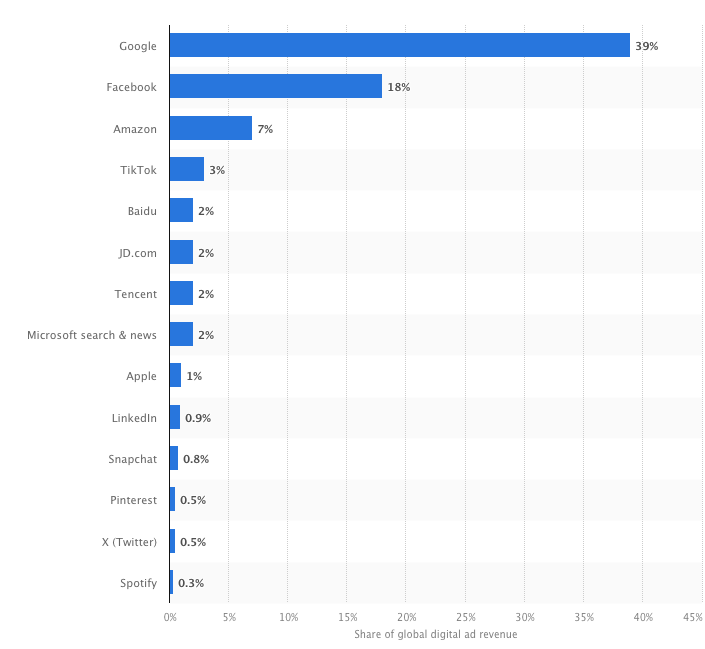In the early days of the Internet, media outlets like BuzzFeed, Huffington Post, and Mashable reigned supreme, commanding immense traffic and shaping the digital landscape. However, as the years unfolded, a seismic shift occurred, and the once-dominant media players found themselves outpaced and outgunned by Silicon Valley behemoths, Facebook and Google. This article explores the journey of how these tech giants won the traffic war, leaving media brands of the social-web heyday in their wake.
In the mid-2000s, a wave of innovative journalism emerged, characterized by its emphasis on shareability, entertainment, and click-worthy headlines. Brands like BuzzFeed revolutionized content creation, churning out viral lists, quizzes, and pop culture pieces that resonated with a vast online audience. Huffington Post, with its provocative headlines and catchy content, quickly became a digital news juggernaut. Mashable excelled in delivering tech and digital culture news with a fresh, engaging twist.

These media outlets understood the psychology of the online audience and leveraged the power of social media platforms to amplify their reach. They rode the wave of user-generated content, fostering a sense of community and interaction that kept readers coming back for more. At their zenith, they seemed invincible.
Simultaneously, Silicon Valley was experiencing its own renaissance. Facebook, founded in 2004 by Mark Zuckerberg, had transformed from a college social network into a global powerhouse with over 2 billion active users. Google, already the undisputed king of search, was expanding its empire into other realms, including video (YouTube), advertising (AdWords), and productivity tools (G Suite).
These tech giants possessed invaluable assets – vast user bases and sophisticated algorithms. Facebook harnessed the power of social connections, while Google wielded the unparalleled ability to index and serve information to users in real-time. With their deep pockets and unparalleled engineering talent, they were poised to dominate the online advertising landscape.
The Algorithmic Advantage
The turning point in the media war was the ascension of algorithms. Facebook and Google honed their algorithms to curate content that catered to individual preferences. Facebook’s News Feed algorithm, for instance, learned from users’ behavior to deliver personalized content, while Google’s PageRank algorithm revolutionized search by prioritizing relevant and authoritative content.
This gave them a distinct edge over traditional media outlets. While the social-web brands thrived on clickbait and catchy headlines, Facebook and Google refined their algorithms to prioritize quality, relevance, and user satisfaction. This meant that users were more likely to find content that genuinely interested them, fostering a deeper and more lasting connection.
Another critical factor was the monetization strategy. Facebook and Google introduced highly effective advertising platforms that allowed brands to target audiences with unparalleled precision. Facebook’s advertising system leveraged user data to serve hyper-targeted ads, while Google’s AdWords revolutionized pay-per-click advertising.
Traditional media outlets struggled to compete. Their revenue models, largely reliant on display ads and sponsored content, couldn’t match the level of targeting and effectiveness that Facebook and Google offered. This led to a steady decline in ad revenues for social-web media brands. Furthermore, the rise of social media presented a double-edged sword for traditional media outlets. While it provided a platform for distribution, it also created an echo chamber effect, where users were increasingly exposed to content that reinforced their existing beliefs and preferences. This meant that the diversity of content that the social-web media outlets had once championed was being drowned out by a flood of personalized content.
The demise of online news and other social-web media giants serves as a cautionary tale of the ever-evolving digital landscape. Facebook and Google’s mastery of algorithms, user-centric content delivery, and targeted advertising upended the traditional media model. The traffic war was not lost overnight, but rather through a combination of technological innovation and strategic foresight. As we move forward, brands and businesses must adapt, innovate, and find new ways to engage their audiences in the face of ever-advancing algorithms. MyBFF Social is dedicated to learning your brand, its value proposition and the best way to reach your customers. The media will continue to evolve, contact us today and let’s make more (BFFs – Business Friends Forever) for your business.

